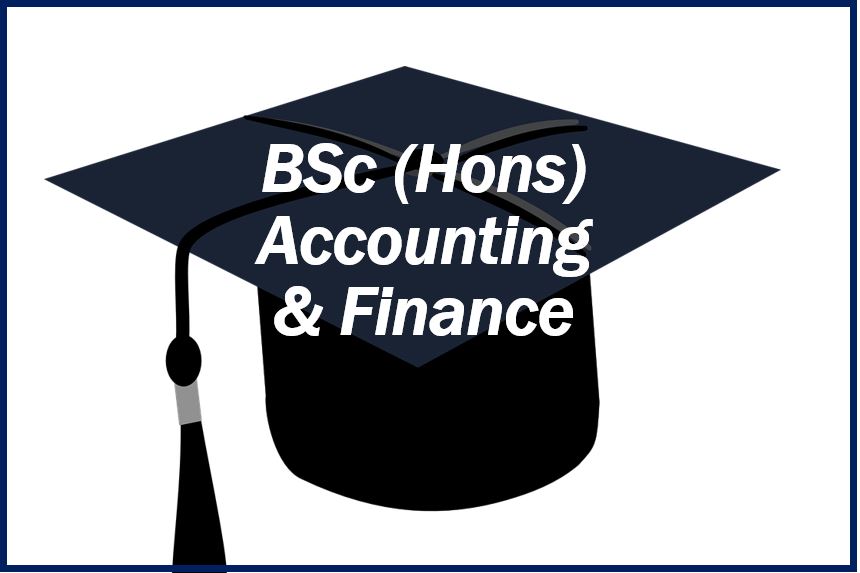
Bachelor accounting degree – A Bachelor of Accounting degree is your gateway to a rewarding career in the world of finance. This program equips you with the knowledge and skills necessary to navigate the complexities of financial management, from recording transactions to analyzing financial statements.
The accounting curriculum typically includes core subjects like financial accounting, managerial accounting, auditing, taxation, and financial reporting. These subjects provide a comprehensive understanding of accounting principles and practices, preparing you for diverse roles within various industries.
Skills and Competencies Developed in an Accounting Program
An accounting program equips students with a comprehensive set of skills and competencies that are highly valued in the business world. These skills are essential for success in various accounting roles, from financial analysis and auditing to tax preparation and management accounting.
The curriculum focuses on developing both technical and soft skills, ensuring graduates are well-prepared to navigate the complexities of the accounting profession.
Technical Skills
Technical skills are the foundation of accounting knowledge and practice. These skills enable accountants to perform their duties accurately and efficiently.
- Financial Accounting: This involves recording, classifying, summarizing, and reporting financial transactions. It includes understanding and applying accounting principles, such as Generally Accepted Accounting Principles (GAAP) and International Financial Reporting Standards (IFRS), to ensure accurate and consistent financial reporting.
- Managerial Accounting: This focuses on providing financial information to internal stakeholders, such as managers, to support decision-making. It involves analyzing costs, budgeting, and performance measurement.
- Taxation: Accountants must understand and apply tax laws to prepare tax returns for individuals and businesses. This includes knowledge of federal, state, and local tax regulations.
- Auditing: This involves examining financial records to ensure their accuracy and compliance with relevant regulations. Auditors provide assurance to stakeholders that financial statements are reliable and free from material misstatements.
Soft Skills
Soft skills, often referred to as interpersonal skills, are equally important for success in accounting. They enable accountants to effectively communicate, collaborate, and build relationships with clients, colleagues, and stakeholders.
- Analytical Thinking: Accountants must be able to analyze complex financial data, identify patterns, and draw conclusions. They use this skill to assess financial performance, identify potential risks, and make informed recommendations.
- Problem-Solving: Accountants frequently encounter challenges that require creative solutions. They must be able to identify problems, analyze the root causes, and develop effective solutions.
- Communication Skills: Effective communication is crucial for accountants. They must be able to clearly and concisely explain complex financial information to both technical and non-technical audiences. This includes written reports, presentations, and verbal discussions.
- Attention to Detail: Accuracy is paramount in accounting. Accountants must be meticulous in their work, paying close attention to detail to ensure the integrity of financial records.
- Ethical Conduct: Accounting professionals are bound by ethical codes of conduct that emphasize integrity, objectivity, and professional competence. These principles guide their decision-making and ensure that they act in the best interests of their clients and stakeholders.
Benefits of Pursuing a Bachelor of Accounting Degree

A Bachelor of Accounting degree opens doors to a rewarding career in a field that is essential to the smooth functioning of businesses and organizations. It offers a blend of theoretical knowledge and practical skills that are highly sought after by employers.
Career Advancement Opportunities and Salary Potential
A Bachelor of Accounting degree is a strong foundation for a successful career in accounting and finance. Graduates can pursue a variety of career paths, including:
- Accountant: Accountants play a crucial role in maintaining financial records, preparing financial statements, and providing financial advice to organizations. The Bureau of Labor Statistics (BLS) projects that employment of accountants and auditors will grow by 7% from 2020 to 2030, which is faster than the average for all occupations.
- Auditor: Auditors examine financial records to ensure accuracy and compliance with accounting standards. They work for both private and public companies, as well as government agencies.
- Financial Analyst: Financial analysts research companies and industries to provide investment recommendations to clients. They often work for investment banks, mutual funds, and hedge funds.
- Tax Accountant: Tax accountants specialize in preparing and filing tax returns for individuals and businesses. They also provide tax planning advice.
- Management Accountant: Management accountants work within organizations to provide financial information to managers to support decision-making.
The salary potential for accounting professionals is strong. According to the BLS, the median annual salary for accountants and auditors was $73,560 in May 2021. Salaries can vary based on experience, location, and industry.
Professional Credibility and Networking Opportunities
Earning a Bachelor of Accounting degree enhances your professional credibility. It demonstrates your commitment to a rigorous curriculum and your ability to meet the demands of the profession.
Furthermore, an accounting degree provides access to a vast network of professionals. Many universities offer career fairs and networking events that connect students with potential employers. Joining professional organizations, such as the American Institute of Certified Public Accountants (AICPA), provides opportunities to connect with other accounting professionals, attend industry conferences, and stay up-to-date on the latest trends.
Lifelong Learning and Continuous Professional Development
The field of accounting is constantly evolving, with new regulations, technologies, and accounting standards emerging regularly. A Bachelor of Accounting degree prepares you for a career that requires lifelong learning and continuous professional development.
“The accounting profession is constantly changing, and it is essential to stay up-to-date on the latest developments. A Bachelor of Accounting degree provides a strong foundation for lifelong learning and professional development.”
Many accounting professionals pursue professional certifications, such as the Certified Public Accountant (CPA) designation. These certifications demonstrate advanced knowledge and skills, and can lead to higher salaries and greater career opportunities.
Choosing the Right Accounting Program

Deciding on the right accounting program is a crucial step in your journey towards a successful career in this field. A well-chosen program can equip you with the necessary knowledge, skills, and connections to thrive in the dynamic world of accounting.
Factors to Consider When Selecting an Accounting Program
The selection process for an accounting program should be deliberate and informed. Here are some crucial factors to consider:
- Program Curriculum: A comprehensive curriculum should cover core accounting principles, financial reporting, taxation, auditing, and other relevant areas. Look for programs that align with your career goals and industry interests.
- Faculty Expertise: The quality of the faculty is essential. Experienced professors with industry knowledge and research expertise can provide valuable insights and guidance. Look for professors with relevant professional certifications or publications in academic journals.
- Career Services: A strong career services office can assist you with internships, job searches, and networking opportunities. Look for programs that offer career fairs, resume workshops, and personalized career counseling.
- Technology Integration: The accounting profession is rapidly evolving with the use of technology. Look for programs that integrate accounting software, data analytics tools, and cloud-based platforms into their curriculum.
- Location and Cost: Consider the location of the program and its proximity to potential employers. Also, factor in tuition fees, living expenses, and financial aid options.
- Campus Culture: A supportive and collaborative campus culture can enhance your learning experience. Look for programs that foster a sense of community and offer student clubs and organizations related to accounting.
Accreditation and Program Reputation
Accreditation is a vital indicator of program quality and ensures that the curriculum meets industry standards. The Accreditation Council for Business Schools and Programs (ACBSP) and the Association to Advance Collegiate Schools of Business (AACSB) are two prominent accreditation bodies for accounting programs.
- Accreditation: Accreditation signifies that the program meets rigorous standards and prepares graduates for professional success. It can also enhance your job prospects and make you more competitive in the job market.
- Program Reputation: Research the reputation of the accounting program among employers and alumni. Look for programs with strong industry connections and a history of successful graduates. You can assess program reputation by examining alumni employment data, industry rankings, and employer feedback.
Types of Institutions Offering Accounting Degrees
Accounting degrees are offered by various institutions, each with its unique characteristics and strengths.
- Universities: Universities typically offer a broader range of academic programs and research opportunities. They often have larger faculty-to-student ratios and more resources for research and development.
- Colleges: Colleges may offer a more focused curriculum and a smaller class size, which can provide a more personalized learning experience. They often have a stronger emphasis on practical skills and career preparation.
Continuing Education and Professional Certifications
Earning a bachelor’s degree in accounting is a great start to a fulfilling career in the field, but it’s not the end of the journey. Continuing education and professional certifications play a vital role in career advancement and keeping your skills sharp in this ever-evolving profession.
Professional Accounting Certifications
Obtaining a professional accounting certification demonstrates a commitment to professional excellence and can significantly enhance your career prospects. Here are some of the most widely recognized certifications:
- Certified Public Accountant (CPA): The CPA is the gold standard in accounting, allowing you to provide audit, tax, and advisory services to clients. It requires a bachelor’s degree, passing the Uniform CPA Examination, and meeting experience requirements.
- Certified Management Accountant (CMA): The CMA focuses on management accounting and financial reporting, equipping you with skills to analyze financial data, make strategic decisions, and drive business performance. It requires a bachelor’s degree and passing the CMA exam.
- Certified Internal Auditor (CIA): The CIA certification is ideal for those interested in internal audit, focusing on risk management, control, and governance. It requires a bachelor’s degree, passing the CIA exam, and meeting experience requirements.
- Chartered Financial Analyst (CFA): The CFA is a globally recognized credential for investment professionals, covering areas like portfolio management, equity analysis, and fixed income. It requires passing three rigorous exams and meeting work experience requirements.
Benefits of Professional Certifications
Earning professional certifications offers several advantages:
- Increased Salary Potential: Certified professionals often command higher salaries than their non-certified counterparts. For example, a study by the American Institute of CPAs found that CPAs earn an average of 18% more than non-CPAs.
- Enhanced Career Opportunities: Certifications can open doors to new job opportunities and career advancements. Many employers prefer candidates with professional certifications, as they demonstrate a commitment to excellence and specialized knowledge.
- Increased Credibility and Recognition: Professional certifications provide credibility and recognition within the industry. They signal to clients and employers that you have the knowledge and skills necessary to perform at a high level.
- Improved Job Security: In a competitive job market, certifications can make you more attractive to employers and help you stand out from the crowd.
Continuing Education
The accounting profession is constantly evolving, with new regulations, technologies, and trends emerging. Continuing education is essential for maintaining professional competency and staying up-to-date with the latest developments.
- Staying Ahead of the Curve: Continuing education allows you to stay abreast of industry trends and emerging technologies, ensuring that your skills remain relevant and in demand.
- Meeting Professional Requirements: Many professional organizations, such as the AICPA and the IMA, require members to complete continuing education courses to maintain their certifications.
- Enhancing Your Knowledge and Skills: Continuing education provides opportunities to deepen your knowledge in specific areas, develop new skills, and expand your expertise.
The Future of Accounting

The accounting profession is undergoing a rapid transformation driven by technological advancements and evolving business needs. The traditional role of an accountant is evolving, requiring professionals to adapt and embrace new skills and technologies to remain competitive.
Impact of Technology and Automation
The rise of automation and artificial intelligence (AI) is reshaping the accounting landscape. Many routine tasks, such as data entry, reconciliation, and basic financial reporting, are becoming automated. This frees up accountants to focus on higher-value activities such as analysis, strategic decision-making, and providing insights to stakeholders.
- Robotic Process Automation (RPA): RPA software can automate repetitive tasks, improving efficiency and accuracy. For example, RPA can automate the process of extracting data from invoices, reconciling bank statements, and generating financial reports.
- Artificial Intelligence (AI): AI-powered tools can analyze large datasets to identify patterns and anomalies, helping accountants detect fraud and make informed decisions. AI can also automate tasks such as tax preparation and financial forecasting.
Emerging Trends in Accounting
Several emerging trends are shaping the future of accounting, creating new opportunities for professionals with the right skills.
- Data Analytics: Data analytics is becoming increasingly important in accounting, enabling accountants to gain insights from large datasets and make data-driven decisions. Accountants with data analytics skills can help organizations understand their financial performance, identify trends, and improve decision-making.
- Cloud Computing: Cloud computing platforms provide accountants with access to powerful tools and data storage capabilities. Cloud-based accounting software allows businesses to manage their finances from anywhere with an internet connection, improving collaboration and efficiency.
- Blockchain Technology: Blockchain technology is revolutionizing financial transactions by providing a secure and transparent ledger. Blockchain can be used to track assets, manage supply chains, and improve financial reporting. Accountants with blockchain expertise will be in high demand as businesses adopt this technology.
Skills and Knowledge for Future Success, Bachelor accounting degree
To succeed in the future of accounting, professionals will need to develop a range of skills and knowledge. Here are some key areas:
- Technical Skills: Accountants will need to be proficient in accounting software, data analytics tools, and cloud computing platforms. They should also be familiar with emerging technologies like blockchain.
- Analytical Skills: The ability to analyze data, identify trends, and draw meaningful conclusions is crucial for accountants. They need to be able to interpret financial information and provide insights to stakeholders.
- Communication Skills: Effective communication is essential for accountants to convey complex financial information to both technical and non-technical audiences. They need to be able to explain financial concepts clearly and concisely.
- Business Acumen: Accountants should have a strong understanding of business principles and how financial decisions impact an organization’s performance. They need to be able to advise businesses on financial strategies and risk management.
- Adaptability and Lifelong Learning: The accounting profession is constantly evolving, so accountants need to be adaptable and willing to learn new skills. They should be proactive in seeking out opportunities for professional development and staying up-to-date on industry trends.
Concluding Remarks
With a Bachelor of Accounting degree, you’ll possess a valuable skill set highly sought after by employers across industries. From corporate finance to public accounting, the opportunities are vast. The accounting profession is constantly evolving, with technology and automation shaping the future. By staying informed and pursuing continuous professional development, you can thrive in this dynamic field.
FAQ: Bachelor Accounting Degree
What is the average salary for accounting graduates?
Salaries for accounting graduates vary based on experience, location, and industry. Entry-level positions typically offer competitive starting salaries, with potential for significant growth as you gain experience and certifications.
What are the job prospects for accounting graduates?
Accounting graduates are highly sought after by employers in a wide range of industries, including finance, healthcare, technology, and manufacturing. The demand for skilled accountants is consistently high, making it a stable and rewarding career path.
What are the most important skills for an accountant?
In addition to technical accounting skills, employers value strong analytical, problem-solving, and communication skills. Being detail-oriented, organized, and able to work independently and as part of a team are also essential attributes.




